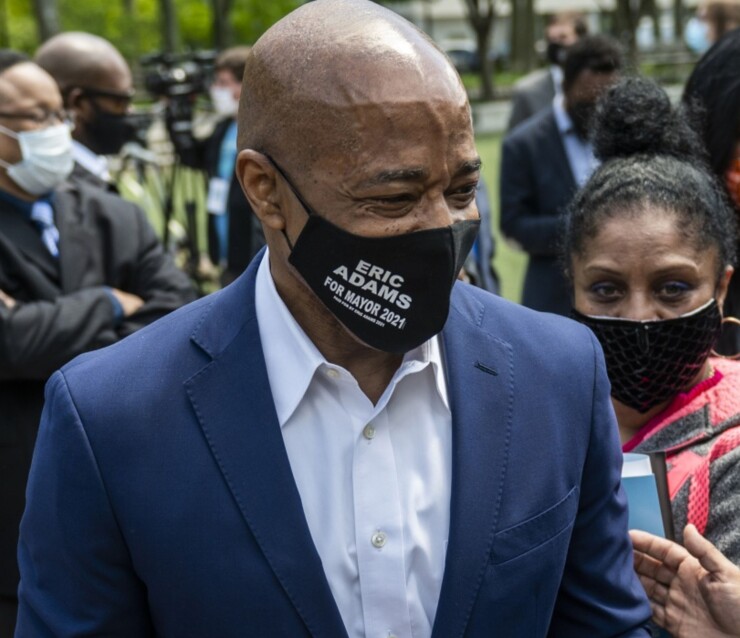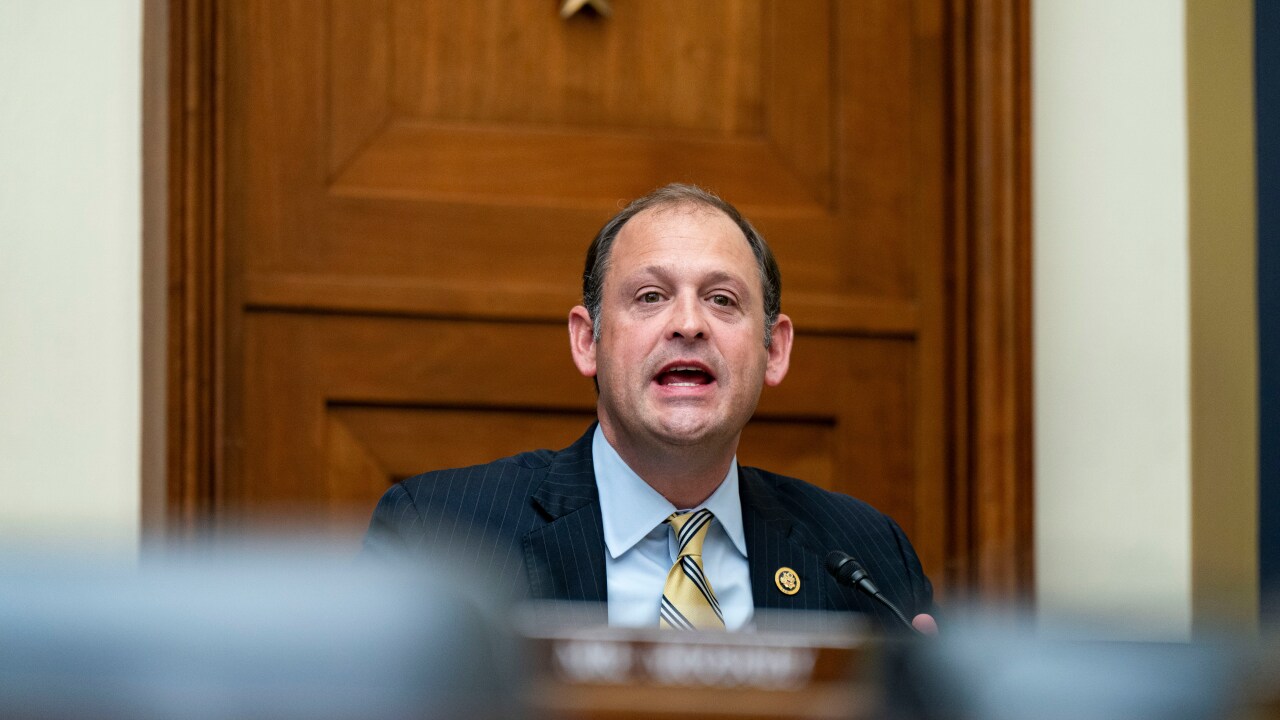Proposed remedies for New York’s economic recovery from the COVID-19 effects were as varied as the candidates themselves Thursday night as eight leading Democratic hopefuls jousted in a live televised debate.
Eric Adams called for a tech buildout. Andrew Yang, who has been running neck-and-neck with Adams for the lead in media polls, is pushing a basic income program.
Kathryn Garcia wants a single city permit for companies “so you won’t have to go to eight agencies to fill a bowl of soup.” Ray McGuire proposed European-style salary subsidies for small-business worker.
City Comptroller and former Manhattan Borough President Scott Stringer cited his public-service savvy. “We can’t afford to have a mayor on training wheels,” he said.
The economic back-and-forth was more measured than banter about social justice and policing, during which candidates often spoke above one another.

The event on NY1, the first live televised debate, was part of a lead-up to the June 22 primary — unusually early this year. Early voting begins June 12.
Bill de Blasio, Democratic mayor since 2014, is term-limited and cannot seek re-election.
This year’s race will the first to feature ranked-choice balloting, under which voters may order candidates by preference.
Also participating Thursday were Shaun Donovan, Maya Wiley and Dianne Morales. Other Democratic hopefuls — debate organizers only invited the top eight in polls — are Art Chang, Aaron Foldenauer, Paperboy Love Prince, Jocelyn Taylor and Isaac Wright Jr.
The Democratic survivor and the winner of the Republican primary between Guardian Angels founder and former radio host Curtis Sliwa and Fernando Mateo, a taxi-driver advocate and restaurant investor will meet in the general election in November.
Bill Pepitone will appear on the Conservative Party line. The crowded field also includes several independents.
While the Democratic winner will be considered a heavy favorite in the fall, Republicans Rudy Giuliani and Michael Bloomberg — the latter now a Democrat — occupied City Hall from 1994 to 2013.
The city has been reeling economically over the past 14 months amid shutdowns of businesses and stay-at-home work orders to combat the pandemic.
New York did get some positive news from the capital markets on Thursday when Moody’s Investors Service
Moody’s still expects the jobs recovery in New York to still lag the nation.
Adams, the Brooklyn borough president and a retired New York Police Department captain, proposed making New York a biotech center. “Lift up what Facebook is doing in Hudson Yards and what Google is doing to Chelsea,” he said.
He also favored a universal job application process as a means of workforce development.
Yang said he would tap the philanthropic, private and tech sectors. “I’m not someone who thinks that all of the energy and ingenuity in our city is just in government agencies.”
He also called crime reduction on streets and in subways essential to the economy. “People are less likely to visit a city that isn’t safe.”
Garcia, the former sanitation commissioner and de Blasio’s food czar early in the pandemic, emphasized the needs of small businesses and women entrepreneurs. She said she would look for new revenue sources, such as marine docking fees.
Garcia, whom the New York Times endorsed, is considered a pragmatist and a counterweight in a field peppered with progressives.
Stringer referenced $2.2 billion of savings through bond refunding his office coordinated along with the Mayor’s Office of Management and Budget.
He also continues to deny wrongdoing in the face of sexual-harassment claims by a former campaign worker. “I will answer every part of it,” he said. “The allegations are not true.”
Wiley, a civil-rights advocate and a former counsel in de Blasio’s office, would boost capital construction spending and earmark $2 billion to catch up on NYCHA’s capital-repairs backlog. “Fix what was broken beforehand,” she said.
Morales, also a progressive, would boost mental-health services and back a large-scale public jobs program.
Donovan, who was U.S. Housing and Urban Development secretary and later Office of Management and Budget difector under President Obama, said he would redirect $3 billion from the criminal justice system "into our communities." He defined criminal justuce as "more broadly" and not necessarily just NYPD.
Regardless of outcome, the winner will have his or her hands full.
“The next mayor faces an enormous challenge,” Rick Cotton, executive director of the bi-state Port Authority of New York and New Jersey, said on a Regional Plan Association webcast. “Obviously, great damage has been done to the economy and to some extent even the fabric of society.”
According to Cotton, recovery starts with basic services.
“By basic I mean sanitation, I mean giving people a sense of order and safety, but then also looking to rebuild and giving a direction. But it’s going to take consulting across multiple groups.
“I think the city needs a cheerleader.”





